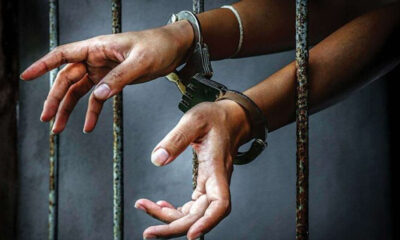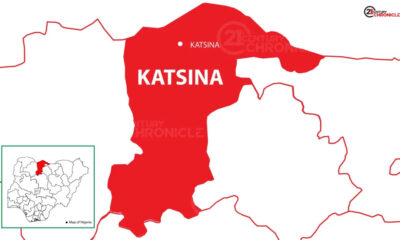metro
Pharmacist jailed for life over rape freed by appeal court
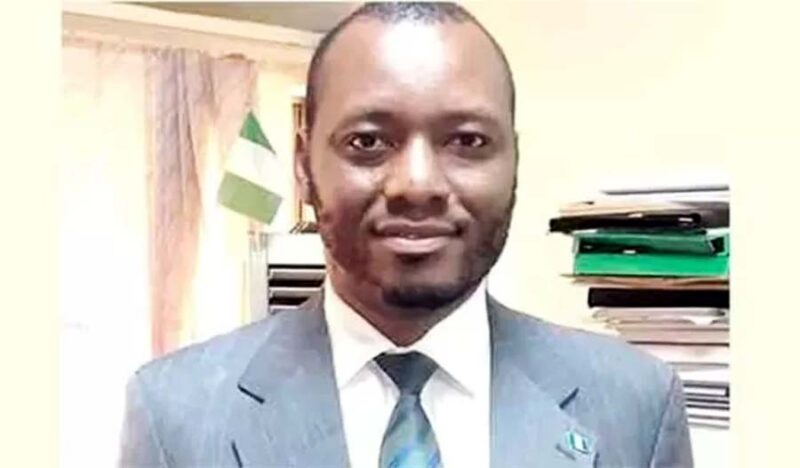
Pharmacist jailed for life over rape freed by appeal court
The Court of Appeal in Abuja has discharged and acquitted a pharmacist, Abubakar Mustapha Danraka, earlier sentenced to life imprisonment by a High Court of the Federal Capital Territory FCT upon conviction for rape.
A three-member panel of the appellate court, headed by Justice Joseph Oyewole faulted the findings and decision of the High Court of the FCT and proceeded to set it aside.
In the lead judgment, Justice Oyewole found among others, that the case was poorly investigated and that the prosecution failed to prove its case with credible evidence as required.
The judgment, delivered on July 15 was on the appeal marked: CA/ABJ/CR/1019/2023 filed by Danraka.
Danraka is described as the Special Adviser to the Director General of the National Institute for Pharmaceutical Research Development (NIPRD), Abuja
He was arraigned on April 5, 2022 on a one count charge of rape, marked: FCT/HC/CR/014/2022 brought against him by National Agency for the Prohibition of Trafficking in Persons (NAPTIP).
Danraka was, in the charge, alleged to have, between March 20 and 21, 2020 raped a 12-year-old male neighbour (names withheld) by intentionally penetrating the victim’s anus with his penis.
READ ALSO:
- Nollywood actor Aki, first wife separate, unveils new partner
- Lagos to divert traffic for 90 days on popular bridge
- NDLEA seizes codeine worth N9.8bn at Onne Port
The prosecution alleged that the incident occurred at Spring Valley Estate, Airport Road, Abuja.
He denied the allegation by pleading not guilty, following which the prosecution called four witnesses during the trial, while the defendant called three witnesses, including himself.
In a judgment on September 18, 2023, Justice Asmau Akanbi-Yusuf accepted the case of the prosecution, convicted Danraka and sentenced him to life imprisonment, a decision he appealed at the Court of Appeal in Abuja.
Justice Oyewole, in the lead judgment of the Court of Appeal, held that the trial court was wrong to have admitted the victim’s extra judicial statement as part of the prosecution’s evidnce.
He also held that the prosecution was wrong not to have investigated the alibi raised by Danraka.
Justice Oyewole also faulted the medical doctor – Dr. Denni Richard Shettima of the Nation’s Hospital, Abuja – who examined the alleged victim, for not equally subjecting the defendant to medical scrutiny.
The judge added: “The only eye-witness to the commission of the said rape was the victim, who testified as PW2 (the victim) at the trial.
“His testimony failed to specifically state that he was raped or penetrated by the appellant.
“In convicting the appellant, however, the lower court relied on the extra-judicial statement of the same PW2 tendered through PW1 (the investigating police officer – IPO) by the prosecution.
“This was an error as the lower court failed to take cognizance of the clear provisions of sections 232 and 233 of the Evidence Act 2011.
“The said extra judicial statement of PW2 was inadmissible for the purposes for which the lower court admitted it and in relying on the said extra judicial statement for evidence to convict the appellant, the findings which emanated therefrom were not only perverse but had occasioned miscarriage of justice.
“As earlier stated, the extra-judicial statement of a witness is not to be tendered in evidence and used as additional evidence against the criminal defendant or accused person, it can only be used to resolve contradictions in the testimony of the witness.
“It follows therefore that a court cannot rely on inadmissible evidence to arrive at its decision.
“The medical doctor who examined PW2 testified as PW4 (the medical doctor) and his evidence was assessed by the lower court as providing needed corroboration for the content of exhibit C, the wrongfully admitted extra judicial statement of PW2.
“On his own, the said PW4 did not examine the appellant although he (the appellant) was readily available at the earliest opportunity.
“His (the medical doctor’s) testimony therefore did not link the appellant with the offence.
“Also, his testimony cannot be corroborated or provide corroboration for the wrongfully admitted exhibit C.
“The absence of legally admissible evidence of penetration by the appellant and the absence of any examination of the appellant by PW4 rendered the evidence of the said PW4 worthless before the court.
“The situation of the respondent was only further exacerbated by the failure to investigate the alibi of the appellant which was raised at the earliest opportunity as contained in exhibit B,” he said.
Justice Oyewole held that the evaluation of the issue of alibi of the appellant by the lower court and the method of investigation by the investigators created an unacceptable impression that the appellant did not enjoy a presumption of innocence under section 36 (5) of the Constitution and that he had the duty of proving his own innocence.
He added: “This must never happen in a criminal trial especially one where the appellant faced the punishment of life imprisonment.
“It is a constitutional imperative that investigators approach their task with an open mind which permits of the possibility that the person brought before them as the alleged offender may be innocent.
“That way every piece of Investigative lead would be adequately covered without any iota of bias.
“In line with the provisions of section 36 (5) of the Constitution that where doubts arise in the case presented by the prosecution then such doubts should be resolved in favour of the accused person or criminal defendant.
“The highlighted doubts in the case of the respondent herein must ensure to the benefit of the appellant.
“In totality, therefore, I find merit in this appeal and I hereby allow it.
“Consequently, the judgment of the lower court delivered in Suit No. FCT/HC/CR/014/2022 delivered on 18th September 2023 is hereby set aside.
“I equally set aside the conviction and sentence of the appellant and instead, the appellant is hereby discharged and acquitted,” Justice Oyewole said.
Justices Peter Obiorah and Okon Abang, who are members of the panel, also agreed with the lead judgment.
Pharmacist jailed for life over rape freed by appeal court
metro
How another Nigerian allegedly murdered by four South Africans

How another Nigerian allegedly murdered by four South Africans
The Nigerian Citizens Association in South Africa has condemned the alleged murder of another Nigerian, 37-year-old Julius Chukwunta, by four South Africans.
The native of Aninri Local Government Area in Enugu State was reportedly attacked on December 7, 2024 while driving to his residence.
Chukwunta stayed in Midrand Protea Estate until his death.
NICASA President-General, Dr. Frank Onyekwelu, in an interview with the News Agency of Nigeria on Saturday, said Chukwunta was blocked by the four men while approaching his residence.
According to him, after attempting to pass through, he was met with resistance, prompting him to seek help at the security office.
Onyekwelu said: “At that moment, the four men allegedly attacked him, leaving him severely injured with a head wound.
“His female companion, who was sitting in the car, rushed to the security office and discovered him bleeding on the ground.
“In spite of attempts to call for help, the security office and residents did not assist in calling the police or an ambulance.
READ ALSO:
- Copyright: Court orders Adele’s song removed from platforms
- Ibadan, Abuja, Anambra stampedes: IG orders probe, threatens prosecution of organisers
- Gabriel Jesus shines as Arsenal thrash Palace 5-1 in London derby
“After an hour, Chukwunta’s partner contacted her father, who, along with other family members, took him to Tembisa General Hospital.
“Chukwunta was placed on life support but later succumbed to his injuries and died at the Tembisa General Hospital on December 10, 2024.”
Onyekwelu confirmed that the case, reported by Chukwunta’s partner, had been registered at the Midrand Police Station under file number: 262/12/2024.
He said the four suspects, aged 20, 24, 27, and 28, were arrested, and the case was presented in Alexandra Magistrate Court on December 13, 2024, where they were charged with murder.
He added: “The court proceedings on December 18, 2024 saw three of the suspects granted bail of R10,000 each, while the fourth had not yet applied for bail.
“The case was adjourned to February 3, 2025.”
Onyekwelu expressed disappointment at the proceedings and vowed that the Nigerian community would continue to demand justice for Chukwunta and support his family.
He emphasised that the community would not rest until justice was served and the value of Nigerian lives was upheld in South Africa.
How another Nigerian allegedly murdered by four South Africans
metro
Ibadan, Abuja, Anambra stampedes: IG orders probe, threatens prosecution of organisers
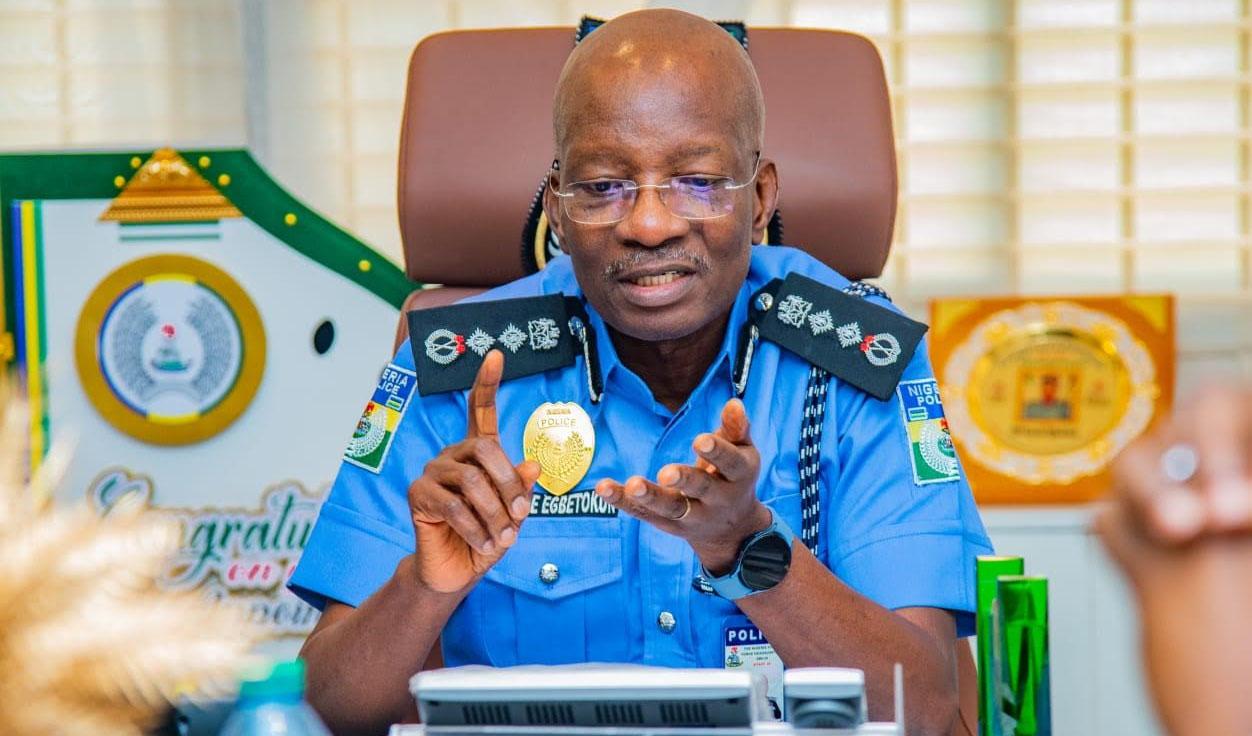
Ibadan, Abuja, Anambra stampedes: IG orders probe, threatens prosecution of organisers
The Inspector-General of Police, Kayode Egbetokun, has voiced worry about the unorganised distribution of palliatives and humanitarian supplies across Nigeria during the festive season.
In recent days, a number of regrettable instances have underlined the need for a more structured and secure approach to aid distribution.
On December 18, 2024, a stampede at a children’s funfair in Ibadan, Oyo State, killed 35 children and gravely injured many others.
Another horrific tragedy occurred on December 21, 2024, when ten people died in a stampede at the Holy Trinity Catholic Church in Maitama, Abuja, where food was being provided to the elderly and weak. Several others suffered wounds.
Similarly, a palliative distribution ceremony sponsored by benefactor Obi Jackson in Okija, Ihiala Local Government Area, Anambra State, ended in mayhem, killing three people and injuring many more.
READ ALSO:
- Gabriel Jesus shines as Arsenal thrash Palace 5-1 in London derby
- Atletico grab late winner at Barcelona to go top of La Liga
- Oleksandr Usyk beats Tyson Fury to retain heavyweight titles
Addressing media in Abuja on Saturday, Force Spokesperson Muyiwa Adejobi stated that the Inspector General of Police has directed the Commissioners of Police in the affected states to investigate the situation for possible legal action.
He said, “The IGP emphasised the dangers posed to public safety during these unorganised distributions and funfairs set up by groups, individuals, and NGOs, including the potential for stampedes and other incidents that could endanger lives.
“The lack of a well-defined plan for distributing palliatives has resulted in chaos, leading to long lines and unnecessary confrontations among citizens seeking assistance.
“In light of these developments, the IGP has called on government officials, community leaders, and non-governmental organisations to work collaboratively towards establishing a comprehensive and organised framework for distributing palliatives.
“The IGP has ordered the commissioners of the affected states to carry out thorough investigations into these ugly incidents for further legal actions. The Inspector-General of Police, therefore, sympathises with the bereaved families and wishes those injured a quick recovery.”
He added that the organisers of this charity are criminally accountable, citing clauses in Nigeria’s Penal and Criminal Codes.
Adejobi said, “The IGP has hereby warned groups and organisers of similar events to ensure the involvement of security agencies, as negligence on their part is criminal and would not be overlooked, as provided for in Sec. 196 of the Penal Code and Sec. 344 of the Criminal Code, Laws of the Federal Republic of Nigeria.”
Ibadan, Abuja, Anambra stampedes: IG orders probe, threatens prosecution of organisers
metro
Yuletide: Travellers want fare discount for road trips
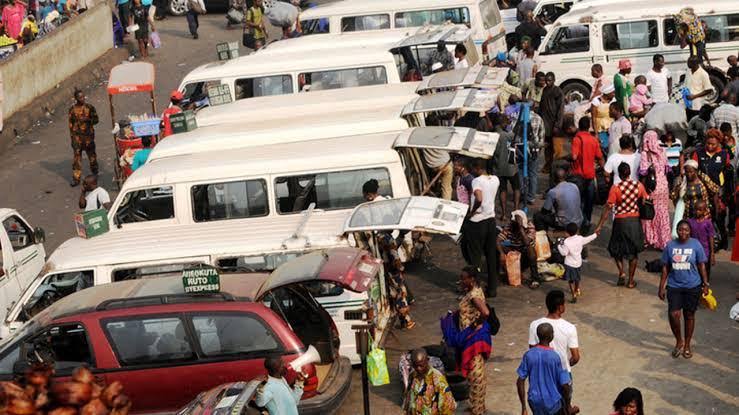
Yuletide: Travellers want fare discount for road trips
- Bemoan high fares
Passengers travelling to their country homes for the Christmas and new year day celebrations have urged the Federal Government to extend the free rail services announced early in the week to road transport routes across the country.
Some of the travellers who complained about the high fares called on the Federal Government to restore the 50 percent fare reduction on inter-state luxury bus routes granted to road passengers at this time last year.
The passengers who spoke at various terminals and loading stations of long distance road transport companies in Lagos, were reacting to the upsurge in fares to about N40,000 on luxury buses and N65,000 on mini buses going to the South-East.
Reports from some of the boarding stations revealed that upon hearing the announcement of free train ride, some passengers thronged the loading stations at various points in Lagos to benefit from the gesture, but were disappointed when they were informed that the offer did not cover road transport.
At Terminal 1 in Oshodi, Alafia, Jibowu, Mazamaza, and private stations in the Cele/Ejigbo axis, on Saturday, passengers bemoaned the high cost of travelling on both the big and small buses, disclosing that many people were not travelling because they couldn’t afford “the exorbitant fares the transport firms are collecting.”
Interestingly, a trip on board Toyota Sienna which used to attract slightly higher fare than on a typical mini bus, is the same at N40,500.
One of the passengers told our reporter one if the stations in Cele, “You press people should please tell (President Bola) Tinubu that poor masses cannot afford to go home this Christmas because there is no money in the country.
“(President) Tinubu should please repeat the 50 percent discount on long distance fares which some of us enjoyed last year to travel home.”
At the nearby Young Young Shall Grow station, a passenger who planned to travel to the east recalled how he took advantage of the 50 percent fare discount to travel from Abuja to Onitsha and back in 2023, and wondered why the Federal Government has not considered the re-introduction of the palliative this festive season.
According to the man who gave his name as Chinedu Uzoechina, his intention to travel to Anambra state and back with his wife and five children, has been stalled by the high transport fares being charged at the various terminals.
Uzoechina, who came to book for seats in advance, lamented, “I was hoping that the 50 percent fare discount that followed the increase in fuel pump price would be available this year, but that has not been the case this year. Forty thousand into seven is N280,000 for one-way luxury tickets.
“If you add the cost of coming back, it means I will spend nothing less than N560,000 on transportation alone for seven of us. Where will I get that kind of money? I have called my wife to inform her of the situation here (at the terminals in Cele).
“She is not happy that we are not travelling anymore, but what can I do?”
According to him, the only thing that can make his family travel again is if the Federal Government extends the free train ride offer to long distance road transport routes, like Lagos-east, or reduces the fares in collaboration with the operators.
Like Uzoechina, many other intending travellers were still hopeful that the government wiuld still intervene with a fare discount, even as they disclosed that they would either cancel the trips outrightly or reduce the number of tickets to be bought, if their hopes are dashed.It was learnt that the fares were slightly lower by about N2,000 at Terminal 1 where both big and mini buses have been loading for day and night trips at Oshodi.
Reacting to the passengers’ complaints about high fares at the terminal owned by the Lagos State Government, Damian Ezuma, the manager of Izu Chukwu Transport, blamed the situation on the rising cost of maintaining the buses as well as on the pump price of diesel, which he said, is as high as N2,000 a litre in some parts of the country.
“It is not our fault. The cost of maintenance is so high that it is only by the grace of God that some of transport companies still manage to keep their buses on the road these days. Do you know that one big bus tyre costs between N250,000 and N500,000, depending on the quality and brand?” Ezuma argued.
He confirmed that many intending travellers who heard about the free train services offer by the Federal Government have been coming to the terminal make enquiries on whether long distance-plying buses are part of the gesture and whether last season’s fare discount applies this year.
Many of them leave the terminal disappointed and deciding not to travel anymore, but opting instead to wait for a possible fare palliative from the government.
Also commenting on the reason for the high fares, a manager at Chisco Transport’s head office in Lagos explained that the unfavourable naira-dollar exchange rate has impacted on the prices of replacement parts and maintenance costs generally.
But a major factor is the fact that during the peak festive season, buses are usually full when leaving major cities like Lagos and Abuja, but are almost empty in their return journeys.
So some operators slightly adjust their fares upward to cover the losses incurred during return trips.
In 2023, the special fare discount by government through the luxury bus owners took effect on December 21, and lasted till the second week of January, 2024.
-

 Railway14 hours ago
Railway14 hours agoLagos Rail Mass Transit part of FG free train ride – NRC
-

 metro2 days ago
metro2 days agoCourt stops customs from seizing imported rice in open market
-

 metro3 days ago
metro3 days agoFG transfers electricity market regulatory oversight in Lagos to LASERC
-

 metro2 days ago
metro2 days agoIbadan stampede: Tinubu orders probe as death toll hits 40
-

 metro2 days ago
metro2 days agoAfe Babalola: Court grants Dele Farotimi bail, barred from media interviews
-

 News2 days ago
News2 days agoAdebayo Ogunlesi, 2 other Nigerians make Forbes 50 wealthiest Black Americans list 2024
-

 metro14 hours ago
metro14 hours agoNIMC warns against extortion, reaffirms free NIN enrollment
-

 metro1 day ago
metro1 day agoIbadan stampede: Ooni reacts after arrest of ex-wife



